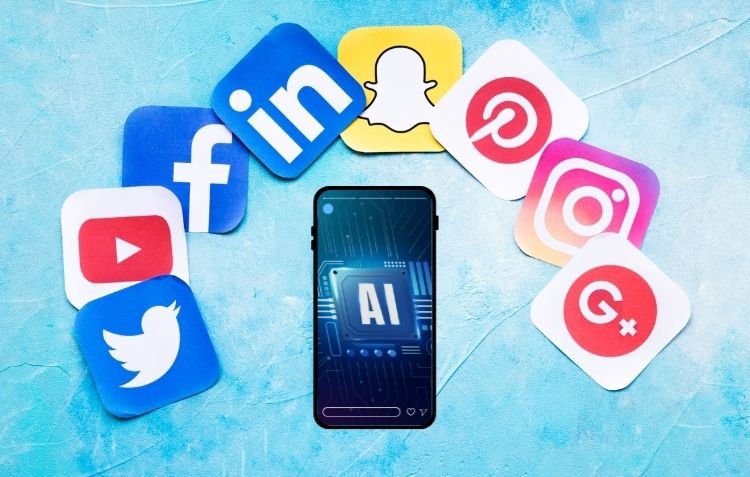Introduction
Artificial Intelligence (AI) is revolutionizing the healthcare industry, driving innovation across diagnostics, treatment, and patient care. The adoption of AI in healthcare is creating new opportunities to improve patient outcomes, reduce costs, and enhance the overall efficiency of medical services. In this article, we’ll explore how AI transforms patient care, focusing on the latest AI healthcare trends and their impact on AI patient care.
1. The Rise of AI in Healthcare
Defining AI in Healthcare
Artificial Intelligence in healthcare refers to the application of machine learning, natural language processing, and other AI technologies to interpret complex medical data. These innovations allow healthcare professionals to make more informed decisions, enhancing both diagnostic accuracy and treatment outcomes. As AI continues to evolve, AI healthcare trends such as AI-driven medical imaging and predictive analytics are revolutionizing the way healthcare is delivered.
The Impact on Patient Care
AI has the potential to vastly improve patient care by automating routine tasks, identifying patterns in patient data, and providing real-time insights. AI patient care systems are able to monitor patient conditions, predict potential health risks, and deliver timely interventions. This technology is especially beneficial for managing chronic conditions, enhancing patient outcomes, and reducing healthcare costs.
2. Key AI Healthcare Trends
AI-Driven Diagnostics and Imaging
AI is making significant strides in diagnostics and medical imaging, where it can analyze images with remarkable accuracy. AI-powered systems are capable of detecting conditions such as cancer, fractures, and neurological disorders earlier than traditional methods. These advancements in AI healthcare trends are enhancing diagnostic precision, leading to quicker, more accurate treatments, which ultimately benefit patients.
Telemedicine and Virtual Care
Telemedicine has surged in popularity, with AI playing a pivotal role in virtual patient interactions. AI chatbots and virtual assistants can handle initial patient queries, assist in diagnosing minor health conditions, and help with appointment scheduling. These tools improve access to healthcare and streamline patient-provider communication, creating more efficient AI patient care experiences.
AI in Surgery
Another promising trend is the use of AI in robotic surgeries. AI-driven robots perform complex surgeries with a precision that often surpasses human capabilities, reducing risks and recovery times. As robotic surgery continues to advance, it will become a core component of modern healthcare, pushing AI healthcare trends further into the future of medicine.
3. How AI is Transforming Patient Care
Personalized Treatment Plans
AI’s ability to process vast amounts of patient data allows for the development of highly personalized treatment plans. By analyzing a patient’s medical history, genetic information, and lifestyle choices, AI can help healthcare providers create tailored care plans that maximize treatment efficacy and improve overall health outcomes. This level of personalization is a significant development in AI patient care.
Remote Monitoring and Predictive Analytics
AI’s predictive capabilities are being utilized in remote patient monitoring systems. Wearable devices, equipped with AI, continuously track a patient’s vital signs and provide real-time data to healthcare providers. This allows for early intervention before a condition worsens, a critical aspect of AI patient care. Predictive analytics also enable doctors to anticipate potential health risks, leading to more proactive and preventative healthcare.
Virtual Health Assistants
AI-driven virtual health assistants are becoming increasingly common in healthcare settings. These assistants can perform tasks such as patient intake, symptom assessment, and medication reminders. Virtual assistants are particularly useful for chronic disease management, offering 24/7 support that enhances AI patient care by ensuring patients receive consistent attention and monitoring.
4. Ethical Considerations and Challenges
Despite the benefits, the use of AI in healthcare raises ethical concerns. Issues such as data privacy, bias in AI algorithms, and the potential for job displacement must be addressed. AI systems are only as good as the data they are trained on, and biased or incomplete data can lead to inaccuracies in diagnosis and treatment. Moreover, as AI healthcare trends continue to evolve, ensuring that AI technologies are used responsibly and ethically is paramount to maintaining trust in healthcare systems.
5. The Future of AI in Healthcare
The future of AI in healthcare holds immense promise. We can expect to see more personalized, predictive, and preventive care as AI technologies advance. AI could soon enable real-time decision-making in emergency settings, enhance drug discovery, and revolutionize areas such as mental health and elder care. The integration of AI into every facet of healthcare will push the boundaries of AI patient care, creating a more efficient, patient-centered healthcare system.
Conclusion
AI is fundamentally changing healthcare, making it more efficient, accurate, and personalized. From AI healthcare trends like AI-driven diagnostics and robotic surgeries to enhancements in AI patient care such as personalized treatment plans and virtual health assistants, the technology is revolutionizing patient care. As AI continues to evolve, it will unlock even greater potential for improving healthcare outcomes. If you’re looking to stay ahead of the curve with AI trends or boost your healthcare business’s online visibility, explore our SEO services to elevate your digital presence. A strong SEO strategy can ensure your healthcare innovations reach the right audience effectively.
FAQs
What are the most important AI healthcare trends?
AI-driven diagnostics, telemedicine, robotic surgeries, and personalized treatment plans are some of the key trends shaping the future of healthcare.
How does AI improve patient care?
AI improves patient care by enabling personalized treatments, real-time monitoring, predictive analytics, and providing virtual health assistants for consistent support.
What ethical challenges does AI pose in healthcare?
The ethical challenges of AI in healthcare include data privacy concerns, bias in AI algorithms, and the potential for job displacement.
How is AI helping in drug discovery and development?
AI is accelerating drug discovery by analyzing large datasets to predict how different compounds will interact with biological systems, reducing the time and cost of developing new medications.
Can AI replace healthcare professionals?
AI is not meant to replace healthcare professionals but to augment their capabilities. It assists in making informed decisions, improving efficiency, and enhancing patient care, while human expertise remains essential in healthcare delivery.




This is exactly what I needed to read today Your words have given me a new perspective and renewed hope Thank you